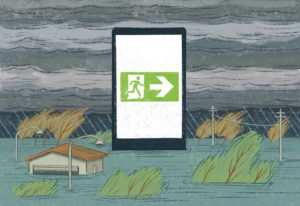
Pau Gasol Valls
Description
APOPOs uses trained rats to detect landmines and diagnose tuberculosis, offering a low-cost, efficient solution to these global challenges. It operates in countries such as Cambodia, Angola, Mozambique and Tanzania, expanding its humanitarian efforts in recent years to places like Senegal and Azerbaijan. APOPO’s work has helped clear landmine-contaminated areas and improve TB detection rates, saving lives & improving public health.
Context
APOPO meets critical social needs by addressing two major global challenges: landmine detection and tuberculosis (TB) diagnosis. Landmine Detection: Millions of landmines and unexploded ordnances remain hidden in post-conflict regions, endangering lives and impeding economic recovery. Countries like Cambodia, Angola, and Mozambique have been heavily affected, with landmines having claimed lives and having prevented access to agricultural land. APOPO’s HeroRATs, trained to sniff out explosives, provide an efficient and cost-effective solution to this problem. Each rat can search an area the size of a tennis court in 30 minutes, whereas traditional methods using metal detectors would take up to four days. APOPO has located over 155,000 landmines and explosives, restoring safety to nearly 2 million people and allowing them to reclaim their land.
Tuberculosis Detection: TB remains a major public health issue, particularly in low- and middle-income countries where diagnosis is often slow and inaccurate. Traditional methods frequently miss TB cases, particularly in clinics with limited resources. APOPO’s rats are trained to detect TB in sputum samples with much higher accuracy and speed than microscopy. Over the years, they have identified more than 27,000 TB-positive patients who were previously undiagnosed, preventing the further spread of the disease to over 270,000 people.
APOPO’s solution meets the need for faster, more effective responses to both landmine clearance and TB detection. By restoring safe land and improving health outcomes, APOPO enhances community resilience, boosts local economies, and saves lives in some of the world’s most vulnerable regions.
Technical details & Operations
APOPO’s innovative solution relies on the use of African giant pouched rats, known as HeroRats, to detect both landmines and tuberculosis (TB). These trained rats are central to two key services: Mine Detection and TB Diagnosis.
Mine Detection:
The HeroRats are trained to detect the scent of explosives, particularly TNT, which is commonly found in landmines. Using their sharp sense of smell, they can quickly cover large areas of land, and since they are light, they avoid triggering any landmines. The process begins with the rats being trained in an environment with controlled scents and is reinforced through a system of rewards. When the rats detect explosives, they scratch at the ground, signalling the location of the landmine to the handlers. This technique, paired with traditional de-mining tools like metal detectors and protective equipment, allows for fast and effective mine clearance.
TB Detection:
HeroRats are also used to detect TB in sputum samples. Traditional TB diagnosis methods in low-resource settings often miss cases, as they rely on basic microscopy techniques that can be slow and error-prone. APOPO’s rats are trained to identify the unique odour profile of TB-positive samples. A single rat can screen hundreds of samples in minutes, which is much faster than conventional methods. Once they detect a positive sample, they signal by pausing over the sample. The use of rats in this process greatly increases the detection rate of TB, catching cases that might otherwise go undiagnosed by clinics.
Training and Technology:
The training process for both mine detection and TB detection involves classical conditioning techniques, where the rats are rewarded with food for successful identification of the target scent. These operations are carried out in APOPO’s specialised training and research centres, ensuring the safety and well-being of the animals. Additionally, APOPO integrates Geographic Information Systems (GIS) and advanced data analysis in mine action to map and prioritise areas for clearance, enhancing the efficiency of their fieldwork.
This combination of innovative animal training, scent detection technology, and operational efficiency enables APOPO to address significant humanitarian challenges in a cost-effective and scalable way.
Deployment & Impact
APOPO’s solution has had a significant social impact, improving both public health and safety through its landmine detection and tuberculosis (TB) diagnosis programs.
Landmine Detection Impact:
APOPO’s deployment of trained HeroRATs in mine-affected countries like Mozambique, Angola, and Cambodia has been crucial in restoring land to communities. Over 155,000 landmines and unexploded ordnances have been safely located and destroyed, directly improving the safety of nearly 2 million people. This allows for the safe return of families to their homes, revitalisation of farmland, and resumption of local economies. In Mozambique, for example, APOPO played a key role in declaring the country mine-free in 2015 after clearing more than 13 million square meters of land. This work has not only saved lives but also restored livelihoods by making previously unusable land safe for agriculture, infrastructure development, and resettlement.
TB Diagnosis Impact:
In the field of public health, APOPO’s HeroRATs have dramatically improved tuberculosis detection, particularly in resource-limited settings. Traditional diagnostic methods can be slow and often miss cases, but the rats provide a faster, more accurate alternative. As of 2024, APOPO’s rats have helped identify over 27,000 previously undiagnosed TB patients, preventing an estimated 270,000 potential infections. This significantly boosts the local healthcare system’s capacity, especially in high-burden countries like Tanzania and Mozambique. The rats have been shown to increase detection rates by up to 40% compared to standard methods.
Deployment Strategy:
APOPO operates through partnerships with governments, NGOs, and international agencies. They work closely with local authorities to ensure their services are tailored to the specific needs of each country. For example, in Cambodia and Angola, they work alongside national de-mining agencies, while in TB detection, they partner with local clinics and hospitals. APOPO’s team of more than 200 professionals is deployed across several countries, operating from research centres, training facilities, and field operations.
In both fields, APOPO’s work has had a tangible social impact, saving lives, preventing disease, and transforming vulnerable communities. Their solution is not only effective but also scalable, offering a model for how innovative, low-tech solutions can address complex global challenges.





